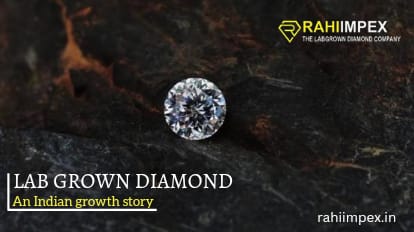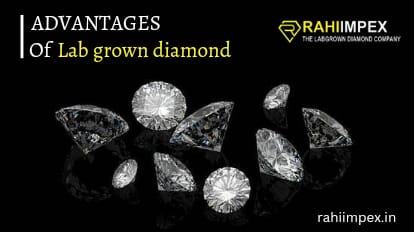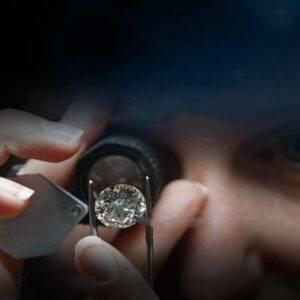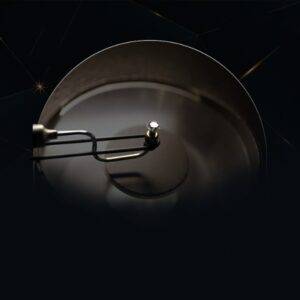Lab-grown diamonds, also known as cultured or synthetic diamonds, are becoming increasingly popular in the jewelry industry. These diamonds are created in a laboratory setting, replicating the natural diamond-growing process. While some may argue that natural diamonds hold a certain mystique and allure, lab grown diamonds offer a range of benefits that make them a compelling choice for many consumers. In this blog, we will explore the key reasons why choosing lab-grown diamond suppliers is a wise decision.
Ethical and Environmentally Friendly
One of the most significant advantages of lab-grown diamonds is their ethical and environmentally friendly nature. Unlike natural diamonds, which are often mined in environmentally sensitive areas and can be associated with unethical practices, lab-grown diamonds are produced in controlled laboratory settings. This means that they have a much lower impact on the environment and are free from the ethical concerns that can be associated with natural diamond mining.
Cost-Effective
Lab-grown diamonds are typically more affordable than natural diamonds. This is because the process of creating lab-grown diamonds is more efficient and less costly than mining natural diamonds. As a result, consumers can enjoy the beauty and brilliance of diamonds at a more accessible price point.
Quality and Purity
Lab-grown diamonds are virtually identical to natural diamonds in terms of their physical, chemical, and optical properties. They are composed of pure carbon and exhibit the same brilliance and sparkle as natural diamonds. This means that consumers can enjoy high-quality diamonds that are indistinguishable from natural diamonds to the naked eye.
Wide Range of Options
Lab-grown diamonds offer a wide range of options in terms of size, shape, and color. Because they are created in a controlled environment, lab grown diamonds manufacturers have more flexibility in producing diamonds with specific characteristics. This means that consumers can find the perfect diamond to suit their preferences and budget.
Conflict-Free
One of the most significant concerns surrounding the diamond industry is the issue of conflict diamonds, also known as blood diamonds. These are diamonds that are mined in war zones and sold to finance armed conflict against governments. By choosing lab-grown diamonds, consumers can be confident that their purchase is not contributing to this unethical practice.
Sustainable Choice
Lab-grown diamonds are a sustainable choice compared to natural diamonds. The process of creating lab-grown diamonds requires less energy and water than mining natural diamonds. Additionally, lab-grown diamonds do not result in the destruction of natural habitats or ecosystems, making them a more environmentally friendly option.
Conclusion
In conclusion, there are many compelling reasons to choose lab grown diamond suppliers. From their ethical and environmentally friendly nature to their cost-effectiveness and quality, lab-grown diamonds offer a range of benefits that make them an attractive choice for consumers. Whether you are looking for a beautiful and sustainable alternative to natural diamonds or simply want to make a more ethical jewelry purchase, lab-grown diamonds are an excellent option to consider.
FAQs
Q: Are lab-grown diamonds real diamonds?
A: Yes, lab-grown diamonds are real diamonds. They have the same chemical composition, crystal structure, optical properties, and physical properties as natural diamonds. The only difference is that lab-grown diamonds are created in a laboratory setting, while natural diamonds are formed over millions of years in the earth’s mantle.
Q: How are lab-grown diamonds made?
A: Lab-grown diamonds are created using two main methods: High Pressure High Temperature (HPHT) and Chemical Vapor Deposition (CVD). In the HPHT method, a diamond seed is placed in a press where it is subjected to high pressure and temperature, causing carbon atoms to bond and form a diamond crystal. In the CVD method, a diamond seed is placed in a chamber filled with carbon-rich gas. When the gas is ionized, the carbon atoms are deposited onto the seed, growing a diamond layer by layer.
Q: Are lab-grown diamonds cheaper than natural diamonds?
A: Generally, lab-grown diamonds are more affordable than natural diamonds. This is because the process of creating lab-grown diamonds is more efficient and less costly than mining natural diamonds. Additionally, lab-grown diamonds do not have the same rarity factor as natural diamonds, which can also contribute to their lower price.
Q: How can I tell if a diamond is lab-grown or natural?
A: It can be challenging to distinguish between lab-grown and natural diamonds with the naked eye. However, there are some characteristics that can help differentiate between the two. For example, lab-grown diamonds may have certain growth patterns or features that are not typically found in natural diamonds. Additionally, lab-grown diamonds are sometimes laser inscribed with a microscopic code that indicates they are lab-grown.
Q: Are lab-grown diamonds eco-friendly?
A: Yes, lab-grown diamonds are considered to be more eco-friendly than natural diamonds. The process of creating lab-grown diamonds requires less energy and water than mining natural diamonds. Additionally, lab-grown diamonds do not destroy natural habitats or ecosystems, making them a more sustainable choice.






